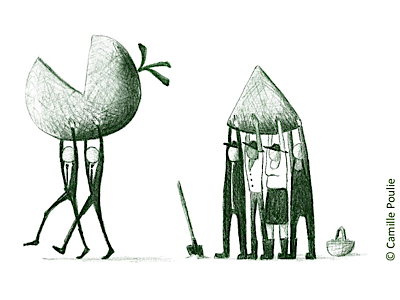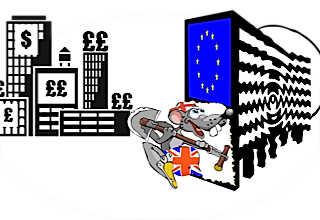
International food trading structures have been built to meet the expectations of a so-called market economy. Increasingly powerful and unaccountable interest groups have come to control routes to market for food. The result is a stranglehold on regional economies.
And yet this power is neither acknowledged nor challenged, as former UN Special Rapporteur on the right to food Olivier De Schutter writes in his foreword to Who’s Got The Power, Tackling Imbalances in Agricultural Supply Chains. Published by a group of international Fair Trade NGOs co-ordinated by the Fair Trade Advocacy Office (FTAO), this study of how power has been concentrated in agricultural supply chains challenges the unfair trading practices that have become part of the supply chain landscape. It breaks what De Schutter describes as a “…taboo…” on how power is exercised in food chains. Good governance in the supply chain needs to be re-established as a matter of urgency, before it gets swept away and labelled ‘red tape’.
The Fair Trade movement has stepped in with this study. It analyses the relationships between buying power and unfair trading practices (UTPs), as well as evaluating the impacts on small farmers, workers and the environment. Fair Trade researchers concluded that supply chains primarily served the interests of input suppliers, traders, brand owners and retailers. The study identifies recurrent patterns in the governance of the routes to market. These patterns provide buyers with ways of manipulating suppliers that have nothing to do with any economic model ever discussed in public.
Speaking at the launch of Who’s Got The Power, Catherine Stihler, a Labour MEP for Scotland welcomed the fresh information that FTAO brings to the public debate. Writing on her website, she explains: “As a member of both IMCO and ECON committees, as well as the recently appointed Vice Chair of the IMCO Committee, I believe this is one of the pressing topics that EU legislators should address promptly. The EU Institutions are keen to tackle this injustice and several steps have been taken in the past few years in order to address the outlined problem of unfair commercial practices executed by EU retailers.”
However, EU enforcement mechanisms to curb unfair trading practices are either ineffective or simply not used. Stihler argues that: “What we have right now are fragmented and partial tools to address unfair trading practices and this is insufficient. Voluntary initiatives are unlikely to be enough to stop these practices. It is time for member states to modernise their approach to consumer welfare to go beyond price and recognise inherent dependence and take into account farmers’ and workers’ welfare. We need increased transparency in the food supply chain too so we can more readily identify the risks of abuse of buyer power and unfair trading practices.”
As the power wielded in the supply chains increases and is freed from any so-called ‘red tape’, agricultural commodity markets become increasingly volatile. The market-makers are misinformed and are encouraged to ignore externalities, which contribute to the development of increasingly capital-intensive and mechanised farming. The results, the study warns, include “…unsustainable livelihoods, child labour, precarious employment and environmental degradation.” Because unfair trade practices often occur outside the European borders, law enforcement agencies are ill-equipped to tackle the problems that arise. In short, the authors argue, farmers’ and workers’ welfare need to be taken into account, as well as the consumer welfare that serves as the start and finish of current policymaking.
The full report is available here: http://fairtrade-advocacy.org/images/Whos_got_the_power-full_report.pdf
Related





